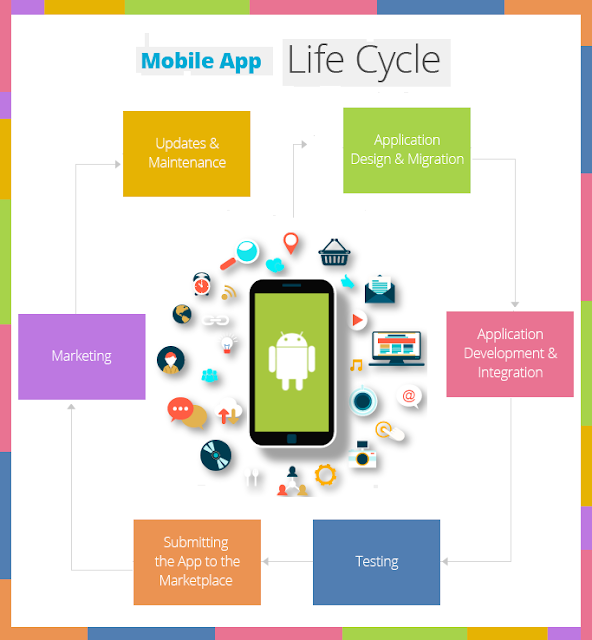Android is a powerful Operating System supporting a large number of applications in Smart Phones. These applications make life extra comfortable and innovative for the users. Hardware that support Android are mainly based on ARM architecture platform. Top 9 Features of a Successful Android Application:
 |
| Android OS |
- A well-placed Feedback System
- Focus on Usability
- The beauty lies in Simplicity
- Offline Capabilities
- Social Media Connectivity
- Keep Relevancy
- Incorporated Analytics
- Make it Touch Sensitive
- Regular Updates
Android is super easy to use. It employs a few reliable UI features and elements that can be originate across nearly all Android devices. We’ll go on a little tour of these before diving a bit further into many of the settings you will encounter throughout this series.
Some of the Common benefits of using Android application development:
Ease of use, Free to use, Ability to edit, Significantly concentrated cycle, High, memory and performance, Supporting media files in various formats, Rich development environment
Android has seen many versions since version 1.0 was released in 2008. Since 2009 they have been named after desserts or sweets alongside their corresponding version numbers. Versions usually come with a numerical code and a name that’s so far been themed after sweets and desserts, running in alphabetical order.
 |
| Android Versions |
1) Android 1.5 Cupcake
2) Android 1.6 Donut
3) Android 2.1 Eclair
4) Android 2.2 Froyo
5) Android 2.3 Gingerbread
6) Android 3.2 Honeycomb - The first OS design specifically for tablets, launching on the Motorola Xoom
7) Android 4.0 Ice Cream Sandwich: The first OS to run on smartphones and tablets, ending the 2.X naming convention.
8) Android 4.1 Jelly Bean: Launched on the Google Nexus 7 tablet by Asus
9) Android 4.2 Jelly Bean: Arrived on the LG Nexus 4
10) Android 4.3 Jelly Bean
11) Android 4.4 KitKat: Launched on the LG Nexus 5
12) Android 5.0 Lollipop: Launched on the Motorola Nexus 6 and HTC Nexus 9
13) Android 6.0 Marshmallow: Launched on the LG Nexus 5X and Huawei Nexus 6P
15) Android 7.1 Nougat: Launched on the HTC-made Google Pixel and Pixel XL
The latest version, Android Nougat, aims to make the OS faster with a feature called 'instant apps', offers improved battery life with Doze on-the-go and adds native VR support.
Android device management tips
Android is the most popular mobile OS out there, but that doesn't make it any easier for IT to manage and safe. In fact, Google's open source approach and the diverse collection of devices that run on Android complicate IT's strategy toward the OS. However, Google has moved its responsiveness toward the enterprise in current years, so organizations have sufficiently of options to control Android devices for safe and productive use in the workplace. Start your mobile's development and get more information with us. This material will surely improve your experience while using your Android device.











